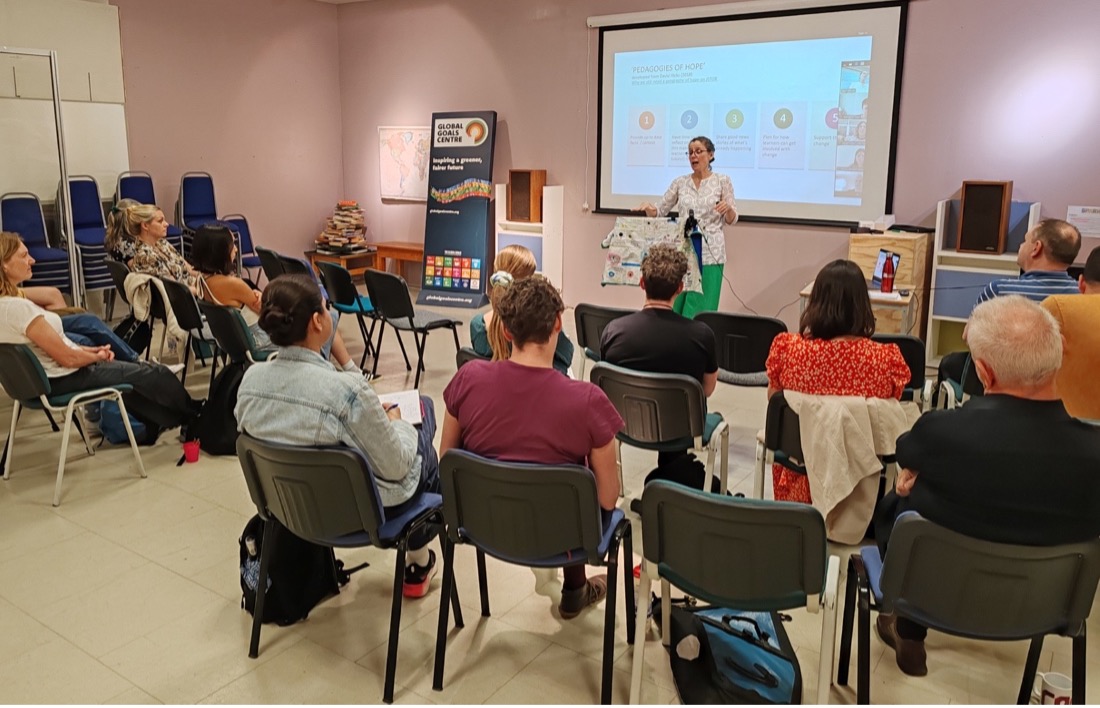Our News
Exploring Emotions and Wellbeing in Carbon Literacy training

This guest blog is written by Dr Verity Jones, Associate Professor in Education at the University of the West of England, Bristol.
As the climate crisis intensifies, so too do the emotional responses it provokes—fear, anger, grief, guilt.
A Spotlight event for Mental Health Awareness Week
During Mental Health Awareness Week 2025, the Trainer Network team at the Carbon Literacy Project and I hosted a powerful training session at Sparks Bristol, a hub for sustainable innovation and education, and simultaneously over Zoom. The session focused on how educators and facilitators can support both their own emotional wellbeing and that of their learners when engaging with climate change.
As a leading voice in climate education and emotional literacy, I guided attendees through a reflective and creative exploration of how we respond to the climate emergency—not just intellectually, but emotionally. Drawing on my extensive research, including work on climate-related emotional responses in children and young people, I emphasised that emotions are not barriers to learning—they are gateways to action.
The session was a blend of lecture, discussion, and hands-on creative reflection. Participants were encouraged to explore their own emotional landscapes through body mapping, visual metaphors, and theatrical devices. These creative approaches encouraged attendees to externalize complex feelings and build a shared language around climate emotions—an essential step in fostering resilience and solidarity.
Normalising Mental Health in Climate Conversations
One of the key takeaways was the importance of normalising conversations about mental health in climate education spaces. We cannot expect people to engage meaningfully with the climate crisis if we don’t also support them emotionally. My research has shown that when learners are given space to express their fears and hopes, they are more likely to feel empowered rather than overwhelmed.
The session also highlighted the role of creativity in climate pedagogy (learning). Whether through crafting, storytelling, or visual expression, creative methods offer a way to process emotions, imagine alternative futures, and build community. These approaches align with my broader work on eco-social pedagogy, which integrates ecological awareness with social justice and emotional wellbeing.
Supporting Yourself to Support Others
Importantly, the training didn’t just focus on learners—it also addressed the emotional toll that delivering training can take on trainers themselves. Attendees discussed strategies for self-care, peer support, and creating emotionally safe learning environments. The message was clear: supporting others begins with supporting yourself.
This event was more than a training—it was a reminder that climate action is as much about hearts as it is about minds. As we navigate the uncertainties of a world in climate crisis, we must make space for grief, cultivate hope, and build emotional resilience. And we must do so together.
By weaving emotional literacy into climate education and Carbon Literacy training, we not only support mental health—we also nurture the empathy, creativity, and courage needed to face the future.
For more information about the work of Sparks Bristol please visit www.sparksbristol.co.uk.
To find out more about Verity’s research and links to her published work, check out: Dr Verity Jones – UWE Bristol.